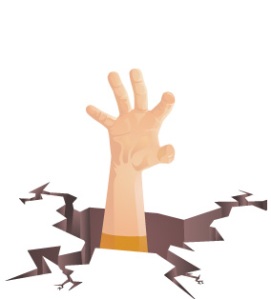Our last session before the Christmas holiday! Everyone else in the group seemed to be quite excited about Christmas – looking forward to the break, busy with planning and organising their festivities and the general feeling on check in on this morning was one of relief and excitement.
Except me (of course – always have to be different).
I am in a dark place at the moment. Check in with myself, where is my mood? Low, low, low…
I hate to sound like a humbug, but I just can’t seem to get excited about Christmas this year. I am trying, really hard actually, for the benefit of the kids, but it is hard, so hard. I suppose I feel that it just hasn’t been the same over the last few years – I used to be the Queen of Christmas – after all, I ran gift shops; My Christmas planning used to begin a whole year in advance, and the entire year was a build-up to December – my product buying had to be finished by april at the latest; floor plans and merchandising strategy in place by July, extra recruitment done by September, ready to switch into full on Christmas on November 6th. Then it would be two months of long days, Christmas shopping evenings and generally working flat out, combined with the hubbub of preparing a family Christmas too – nativities, making mince pies and tree decorations – the things young children love about this time of year. I had to be supremely organised – which I was; I thrived on the business and adrenaline that this time of year meant to me. I loved it.
But in the last two or three years, it has gradually unravelled for me. The first Christmas after I separated from my husband was hard – but I coped pretty well – the kids were still small, and I had to keep the shops buzzing. Sadly, finding out about his new relationship and affair on Christmas eve, wasn’t my best Christmas present ever, but I chose to ignore it for the most part, and threw myself into the festivities harder than ever, determined not to let that spoil things. The last two years have been harder I guess, as I haven’t had the shops to keep me busy in the same way. I had worked every single Christmas in Retail for nearly 25 years; Cheesy Christmas music was force fed to me, forcing me to be festive and jolly. This year and last year have been the first ever, where I have not had to work on Christmas eve, and wish people a ’Merry Christmas’ a hundred times over!
This year Christmas will be very quiet for us, as my kids have reached the age where they really do not want to be involved in many family events, so it will be a small cosy affair with just the three of us, for the first time ever! How do I feel about that? Distinctly underwhelmed, worried that it will just be a day, like any other with the small difference of a bit of an extra tasty dinner! I am worried that I will feel lonely; which is probably why the exercise we did in the morning really upset me so much…
We were asked to ‘free write’ on the theme of ‘loneliness’, and this is what came out;
Empty evenings
Bored
Alone
Trapped in my own head
Four walls closing in
Feeling my thoughts take over
Inner voices filling the void
Fed up with my apathy and lethargy
Playing twisted tricks on me
This treacherous world is a cold dark lonely place
Uncaring
Untrusting
I need to hide; stay warm; feel cocooned
Shelter from the pain
Hurt
Cut myself off
Even though I long for contact, for touch
Is this insanity? Is this what it means?
I want to work out what it truly is
But my head pounds
Spins
I need to shut it down
Silence the circular ramblings
The questions that are always unanswered
And sleep until it is all washed away
But then I wake up
And nothing changes
Still the same
The truth is; we are all born alone and die alone
The space inbetween spent chasing
Connections, commitment, communion
All of them distractions from reality
All meaning found is just a comforting illusion
A denial
Does that make me crazy?
Or do I have clarity?
We were given half an hour to do this in. I probably wrote for about ten minutes of that time, and spent the rest of it weeping to myself. I just couldn’t stop. The sadness it stirred within me was quite overwhelming; the awareness of the four givens (death, isolation, freedom and meaninglessness) and the weight of those subjects.
I has worried me. Am I resilient enough to do this work? Is this a temporary state, or will I always over empathise? Is there such a thing as ‘over empathising’? I always thought surely not, but now I just don’t know. I feel very, very delicate, nervous about the Christmas break. Even though this course has been such hard work, I need it so much – it is my only affirmation at the moment, the only thing that gives me validation in who I am – I was one of the last to leave at the end of the session yesterday – was that because I just feel that I need to be here so badly? Or because I was afraid of going home and beginning the holiday, and accepting that I do feel lonely at Christmas?
I can’t accept it, I just can’t. I am going to do something about it. I will report back in the New Year with positivity, I PROMISE. Myself



